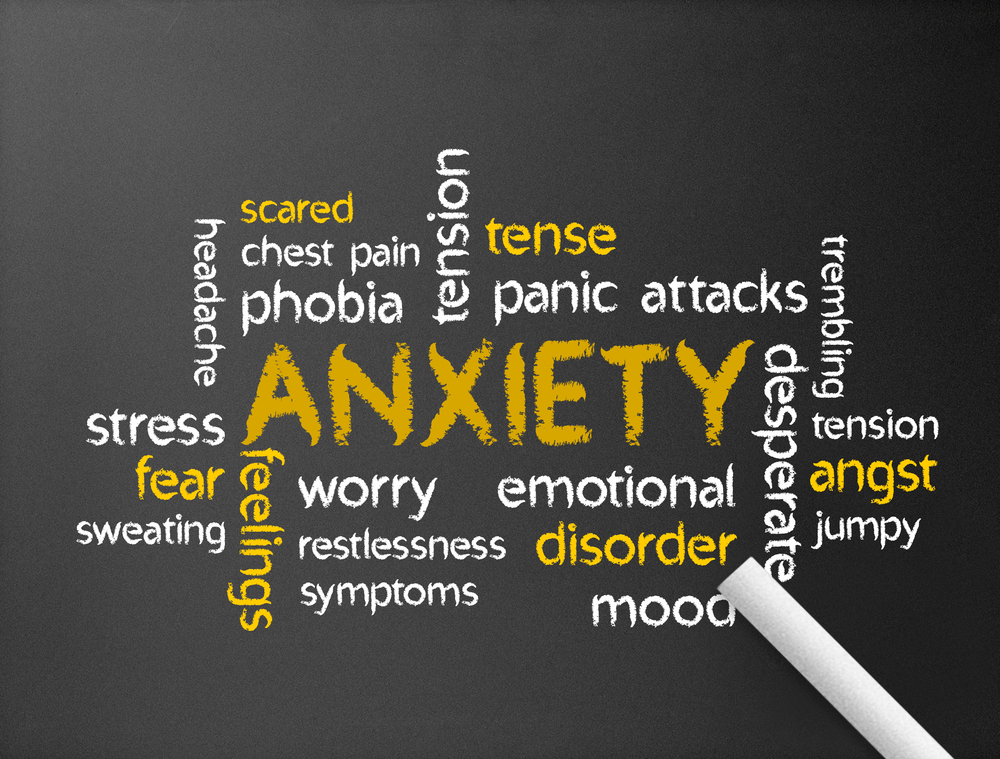Anxiety

Anxiety Disorders
Anxiety is a state or feeling of fear, worry, dread and uneasiness. Experiencing occasional anxiety is normal in daily life but excessive and repeated feeling of intense and persistent worry about everyday activities or in daily routine is an anxiety disorder. Anxiety disorder often results in repeated episodes that reach a peak in minutes resulting in panic attacks.
It interferes with work and daily life and can last long if untreated.
Causes
There are many causes for anxiety. In some cases, life events such as traumatic or painful experiences cause sudden anxiety or anxiety disorder at a later stage. Anxiety disorders can also be inherited. There are cases that anxiety disorder runs in families. Anxiety can be a first indicator of underlying medical illness such as heart diseases, hyperthyroidism. It can also be linked to diseases such as diabetes, hypertension, respiratory diseases like asthma, irritable bowel syndrome and digestion issues. Anxiety disorder can also be a side effect of certain medications. Withdrawal of alcohol or drugs or smoking causes anxiety in some cases. In children, separation from parents, abuse or physical trauma can be the causes for anxiety they develop at that specific time or can occur at a later stage of life. The other factors are stress, underlying diseases and even depression can cause anxiety.
Symptoms
The common signs and symptoms of anxiety disorder are feeling nervous or restless, increased heart rate, breathing rapidly, feeling a sense of danger or panic, sweating, feeling tired. Some people experience gastrointestinal issues like gastritis and nausea. Lack of sleep is another common symptom in anxiety disorder. People with anxiety disorder have the urge to avoid things that trigger anxiety and also face difficulty in controlling their worry.
Types of anxiety disorder
Generalized anxiety disorder– this type is more common. They have excessive and persistent worry about daily routine activities and experience difficulty to control their worry.
Separation anxiety disorder– it is a childhood disorder that is linked to excessive anxiety levels and is seen when separated from parents or others who play parental roles.
Selective mutism – seen in children where they are not able to speak in certain situations in school or home due to excessive fear or due to lack of social functioning. They interfere with school, work and social life.
Panic disorder – this involves repeated episodes of sudden, intense feeling of fear that reach a peak within minutes. It can result in chest pain, pounding heart, breathlessness.
Agoraphobia- this type of disorder is seen due to fear of places such as waterfalls or beach, curved hilly roads or other places that cause them mental trauma. They tend to often avoid visiting such places as that triggers anxiety.
Treatment
It is always better to get help as early as possible if one feels they have a consistent worry or anxiety. Anxiety unlike other mental conditions can be harder to treat later. The other ways to reduce anxiety disorders are to stay active, engage in doing things that feels good or feels proud, refrain from things that cause anxiety, speak to your loved ones. It is always better to consult psychiatrist if anxiety interferes with work and life. The psychiatrist will help depending on the stages and types and guide in the right treatment which may include counseling or administration of anti anxiety medicines. Anxiety is treatable and can be cured.




